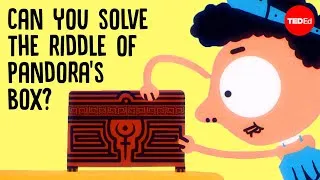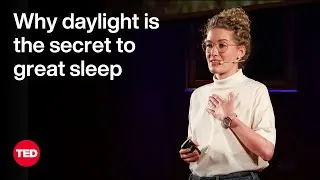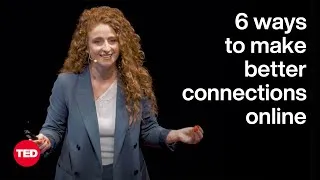請雙擊下方英文字幕播放視頻。
譯者: Wang-Ju Tsai
審譯者: Joan Liu
請大家看一看這個小嬰兒
00:16
I want you to take a look at this baby.
0
16284
2683
你會被她的眼睛所吸引
00:19
What you're drawn to are her eyes
and the skin you love to touch.
1
19439
4796
你也會想摸摸她粉嫩的肌膚
00:24
But today I'm going to talk to you
about something you can't see.
2
24646
3140
但是今天我要跟大家談談你所看不到的東西
00:27
What's going on
up in that little brain of hers.
3
27810
2752
在她的小腦袋裏發生的事情。
00:31
The modern tools of neuroscience
are demonstrating to us
4
31395
3921
現代的腦神經科學的儀器
能向我們顯示腦袋瓜裏發生的
00:35
that what's going on up there
is nothing short of rocket science.
5
35340
3895
是十分神奇奧妙的事。
00:39
And what we're learning
is going to shed some light
6
39996
3437
而我們研究的結果
將會帶領我們一窺
00:43
on what the romantic writers and poets
described as the "celestial openness"
7
43457
5898
浪漫詩人和作家所描述的
小孩心靈那有如
00:49
of the child's mind.
8
49379
1857
“天體般的公開”。
這裡我們看到的
00:52
What we see here is a mother in India,
9
52273
3458
是個在印度的媽媽
00:55
and she's speaking Koro,
which is a newly discovered language.
10
55755
3904
她說的是一個叫做Koro的語言
這是一個新發現的語言。
她正在跟她的嬰兒講話
01:00
And she's talking to her baby.
11
60057
1807
這個媽媽
01:02
What this mother --
12
62349
1156
01:03
and the 800 people who speak
Koro in the world --
13
63529
3219
和全世界總共800個講Koro的人
01:06
understands is that,
to preserve this language,
14
66772
3210
都很清楚,想要保存這個語言的話
那就必須跟新生兒說這個語言。
01:10
they need to speak it to the babies.
15
70006
2586
01:12
And therein lies a critical puzzle.
16
72616
2875
這裡面有個關鍵的謎題
01:15
Why is it that you can't
preserve a language
17
75515
2250
爲什麽跟你我這樣的成年人說
01:17
by speaking to you and I, to the adults?
18
77789
3235
是無法保存這個語言的呢?
這個,跟你我的大腦有關。
01:21
Well, it's got to do with your brain.
19
81048
2188
01:23
What we see here is that language
has a critical period for learning.
20
83798
4438
我們這裡的意思是說
學習語言有一段關鍵的時期。
01:28
The way to read this slide is to look
at your age on the horizontal axis.
21
88260
3800
這張投影片X軸是你的年齡
(笑聲)
01:32
(Laughter)
22
92084
2683
01:34
And you'll see on the vertical
your skill at acquiring a second language.
23
94791
3639
垂直的Y軸
是你學習第二外語的能力。
嬰兒和幼童在七嵗以前
01:39
The babies and children are geniuses
until they turn seven,
24
99049
3859
都是學習語言的天才
01:42
and then there's a systematic decline.
25
102932
2304
七嵗以後能力就遞減。
01:45
After puberty, we fall off the map.
26
105260
2497
青春期以後就掉到圖的外面了。
所有的科學家都同意這條曲綫
01:48
No scientists dispute this curve,
27
108194
2532
01:50
but laboratories all over the world
28
110750
1955
但是全世界的各大實驗室
01:52
are trying to figure out
why it works this way.
29
112729
2507
想盡辦法要找出原因來解釋這個現象。
01:55
Work in my lab is focused on the first
critical period in development,
30
115778
4034
我的實驗室裏的研究專注在
發展過程裏最早的關鍵時期
01:59
and that is the period in which babies
31
119836
1845
也就是嬰兒建立學習語言
02:01
try to master which sounds
are used in their language.
32
121705
3365
用到的語音的集合的時期。
我們想,藉著研究語音是如何學起來的
02:05
We think, by studying
how the sounds are learned,
33
125094
2490
02:07
we'll have a model
for the rest of language,
34
127608
2265
我們就能把剩下的學習語言的機制建立起來,
02:09
and perhaps for critical periods
that may exist in childhood
35
129897
2938
甚至還能把嬰兒學習社交能力
02:12
for social, emotional
and cognitive development.
36
132859
2863
情緒、認知能力的關鍵時期
也找出來。
02:16
So we've been studying the babies
37
136295
1941
所以我們研究小嬰兒
02:18
using a technique
that we're using all over the world
38
138260
2503
我們用了一個技巧
02:20
and the sounds of all languages.
39
140787
1856
適用於各地的嬰兒和所有的語言。
02:22
The baby sits on a parent's lap,
40
142667
1791
我們把嬰兒放在媽媽的大腿上
02:24
and we train them to turn
their heads when a sound changes --
41
144482
2921
我們訓練嬰兒,當聽到語音改變時會轉頭
像從“ah”變成“ee”時。
02:27
like from "ah" to "ee."
42
147427
1458
02:28
If they do so at the appropriate time,
the black box lights up
43
148909
3433
如果他們在對的時間轉頭
這個黑盒子就會亮起來
02:32
and a panda bear pounds a drum.
44
152366
1984
熊貓也會開始敲鼓。
02:34
A six-monther adores the task.
45
154374
2418
六個月大的小嬰兒很喜歡這個遊戲。
那麽,我們得到什麽結果?
02:37
What have we learned?
46
157420
1161
02:38
Well, babies all over the world
47
158605
2160
世界上所有的嬰兒
02:40
are what I like to describe
as "citizens of the world."
48
160789
3658
—我常常喜歡稱呼他們為
世界公民—
02:44
They can discriminate
all the sounds of all languages,
49
164906
2928
都有能力去分辨所有語言的所有語音
02:47
no matter what country we're testing
and what language we're using,
50
167858
3232
不論我們在哪一國用哪一個語言測試。
這是了不起的,因爲這件事你我都辦不到。
02:51
and that's remarkable
because you and I can't do that.
51
171114
2995
我們的聽力是受到我們的文化束縛的。
02:54
We're culture-bound listeners.
52
174133
1971
我們只能分辨我們自己語言裏的語音
02:56
We can discriminate the sounds
of our own language,
53
176128
2395
別的語言裏的語音我們是聼不出有什麽不同的。
02:58
but not those of foreign languages.
54
178547
1847
所以問題就來了
03:00
So the question arises:
When do those citizens of the world
55
180418
3167
什麽時候這些一生下來為世界公民的小嬰兒
03:03
turn into the language-bound
listeners that we are?
56
183609
2884
會變成像你我一樣只懂得單一語言呢?
03:06
And the answer:
before their first birthdays.
57
186517
3137
答案是:一歲以前。
03:09
What you see here is performance
on that head-turn task
58
189678
3132
你這裡看到的是嬰兒轉頭測試
03:12
for babies tested in Tokyo
and the United States,
59
192834
2463
在東京和在美國的
在這裡西雅圖作的
03:15
here in Seattle,
60
195321
1438
03:16
as they listened to "ra" and "la" --
61
196783
1749
他們分別聼“ra”和“la”
03:18
sounds important to English,
but not to Japanese.
62
198556
2806
這兩個在英語不一樣但在日語裏沒差別的音。
03:21
So at six to eight months,
the babies are totally equivalent.
63
201386
3378
六到八個月的嬰兒的表現完全一樣
03:24
Two months later,
something incredible occurs.
64
204788
2554
兩個月後,不可思議的事發生了。
03:27
The babies in the United States
are getting a lot better,
65
207366
2680
在美國的嬰兒分辨得越來越好
在日本的卻是越來越差,
03:30
babies in Japan are getting a lot worse,
66
210070
1924
這兩組嬰兒正是同處在
03:32
but both of those groups of babies
are preparing for exactly the language
67
212018
3450
準備學習母語的階段。
03:35
that they are going to learn.
68
215492
1492
所以,我們要問,在這關鍵的兩個月
03:37
So the question is: What's happening
during this critical two-month period?
69
217008
4624
發生了什麽事?
03:41
This is the critical period
for sound development,
70
221656
2343
這個階段是語音發展的階段
在嬰兒的腦袋裏發生了什麽事?
03:44
but what's going on up there?
71
224023
1415
03:45
So there are two things going on.
72
225462
1979
有兩件事發生了
03:47
The first is that the babies
are listening intently to us,
73
227465
2876
第一是,嬰兒很密集地聼我們的發聲
03:50
and they're taking statistics
as they listen to us talk --
74
230365
3733
他們一邊聼一邊在腦袋中作統計
他們在做統計。
03:54
they're taking statistics.
75
234122
1981
聼兩個媽媽在說「母語」——
03:56
So listen to two mothers
speaking motherese --
76
236127
2539
03:58
the universal language
we use when we talk to kids --
77
238690
3042
也就是所有的媽媽跟小孩說的話——
04:01
first in English and then in Japanese.
78
241756
2211
先是英語,再來是日語。
04:03
(Video) Ah, I love your big blue eyes --
79
243991
3439
(影像)美國媽媽:啊,我好喜歡你的藍眼睛
04:07
so pretty and nice.
80
247454
2806
好漂亮,好美喔。
04:11
(Japanese)
81
251309
5927
日本媽媽:[日語]
04:17
Patricia Kuhl: During the production
of speech, when babies listen,
82
257712
3367
Patricia Kuhl :在學習語音的階段
當嬰兒聼的時候
04:21
what they're doing is taking statistics
on the language that they hear.
83
261103
4769
他們是在做統計
在統計他們聽到的語言。
04:26
And those distributions grow.
84
266613
2910
語音的分佈情況也會改變
04:29
And what we've learned is that babies
are sensitive to the statistics,
85
269547
4373
我們現在知道的是
嬰兒們對語言統計很敏感
04:33
and the statistics of Japanese
and English are very, very different.
86
273944
3828
而英日語語音的統計分佈是十分不同的。
04:37
English has a lot of Rs and Ls.
87
277796
2657
英語有很多的“R”和“L”
04:40
The distribution shows.
88
280477
1759
從這裡可以看出。
04:42
And the distribution of Japanese
is totally different,
89
282260
2840
日語的語音分佈是完全不同的
我們可以看到有一群語音分佈於L和R之間
04:45
where we see a group
of intermediate sounds,
90
285124
3001
就是所謂的日語的R。
04:48
which is known as the Japanese "R."
91
288149
2415
04:50
So babies absorb
the statistics of the language
92
290588
4108
嬰兒會吸收
語言語音的統計分佈
04:54
and it changes their brains;
93
294720
1678
而這會進而改變他們的腦。
04:56
it changes them
from the citizens of the world
94
296422
2151
這會使他們從世界公民
04:58
to the culture-bound
listeners that we are.
95
298597
2946
轉變成跟我們一樣受自己的文化所限制。
05:01
But we as adults are no longer
absorbing those statistics.
96
301567
4713
我們已經長成
不會再吸收這些統計的結果了。
我們也就受制於
05:06
We are governed
by the representations in memory
97
306304
2557
05:08
that were formed early in development.
98
308885
2549
早期在發展時期形成的記憶。
05:11
So what we're seeing here
99
311458
1778
所以我們這裡看到的
05:13
is changing our models
of what the critical period is about.
100
313260
3233
是在這個關鍵時期語音分佈模型的改變。
05:16
We're arguing from
a mathematical standpoint
101
316517
2769
我們從數學的觀點來看
05:19
that the learning of language
material may slow down
102
319310
3140
語言資訊的學習速度在分配達到穩定後
05:22
when our distributions stabilize.
103
322474
2380
就會慢下來。
05:24
It's raising lots of questions
about bilingual people.
104
324878
2862
對會雙語的人來説,這裡面有很多疑問。
會雙語的人必須保留兩套統計資料
05:28
Bilinguals must keep two sets
of statistics in mind at once
105
328178
4031
並且在這兩套間換來換去
05:32
and flip between them,
one after the other,
106
332233
2883
隨著對話的對象不同換成不同的統計。
05:35
depending on who they're speaking to.
107
335140
1772
05:36
So we asked ourselves,
108
336936
1154
所以我們問自己
05:38
can the babies take statistics
on a brand new language?
109
338114
3407
小嬰兒可以對新的語言作統計嗎?
05:41
And we tested this
by exposing American babies
110
341545
3278
我們測試了這個假設,
讓處在發展關鍵時期
05:44
who'd never heard a second language
111
344847
1689
但從未聼過其他語言的美國嬰兒聼國語。
05:46
to Mandarin for the first time
during the critical period.
112
346560
2716
我們已經知道,用國語測試單語的嬰兒
05:49
We knew that, when monolinguals
were tested in Taipei and Seattle
113
349300
3537
在臺北或西雅圖嬰兒
05:52
on the Mandarin sounds,
they showed the same pattern.
114
352861
2662
他們顯示相同的模式
05:55
Six to eight months,
they're totally equivalent.
115
355547
2471
六、八月大的嬰兒,完全一樣。
兩個月以後,不可思議的事發生了。
05:58
Two months later,
something incredible happens.
116
358042
2536
06:00
But the Taiwanese babies are getting
better, not the American babies.
117
360602
3552
臺灣的嬰兒變得更好,美國的沒有。
我們接下來讓美國的嬰兒
06:04
What we did was expose American babies,
during this period, to Mandarin.
118
364178
4882
聼國語。
就好像有說國語的親戚來拜訪一個月
06:09
It was like having Mandarin relatives
come and visit for a month
119
369084
3008
住在你家裏
06:12
and move into your house
and talk to the babies for 12 sessions.
120
372116
3797
並且跟嬰兒說了12場的話。
06:15
Here's what it looked like
in the laboratory.
121
375937
2206
這是一段在實驗室的影片
(影片)國語:
06:18
(Mandarin)
122
378167
5556
06:39
PK: So what have we done
to their little brains?
123
399922
2246
所以,這些小腦袋瓜裏發生了什麽事?
(笑聲)
06:42
(Laughter)
124
402192
2044
06:44
We had to run a control group to make sure
125
404260
2671
我們必須另外跑一組控制組
06:46
that coming into the laboratory
didn't improve your Mandarin skills.
126
406955
3212
來證明光進一趟實驗室
是不能改善你的國語能力的。
06:50
So a group of babies came in
and listened to English.
127
410191
2653
所以有一組嬰兒來實驗室但是聼英語。
06:52
And we can see from the graph
128
412868
1402
我們可以從圖上看到
06:54
that exposure to English
didn't improve their Mandarin.
129
414294
2583
對英語有所接觸並不能改善他們的國語。
06:56
But look at what happened to the babies
exposed to Mandarin for 12 sessions.
130
416901
3595
但是看看聼了12場國語的嬰兒
有什麽改變?
07:00
They were as good as the babies in Taiwan
131
420520
2400
他們的國語就跟住在臺灣
07:02
who'd been listening
for 10 and a half months.
132
422944
2976
聼了十個月半國語的嬰兒一樣好。
07:05
What it demonstrated is that babies
take statistics on a new language.
133
425944
3824
這顯示了嬰兒有能力
對新的語言來做統計。
07:09
Whatever you put in front of them,
they'll take statistics on.
134
429792
3444
他們聽到的是什麽語言,他們都能做統計。
07:13
But we wondered what role
135
433260
1590
我們也想知道
07:14
the human being played
in this learning exercise.
136
434874
4237
真人的出現在這個學習裏面
扮演著什麽樣的角色。
07:19
So we ran another group of babies
in which the kids got the same dosage,
137
439428
4316
所以我們又測試了另一組嬰兒
也是聼了12場的國語
07:23
the same 12 sessions,
but over a television set.
138
443768
2468
但是是透過電視(視覺組)
07:26
And another group of babies
who had just audio exposure
139
446260
3661
還另外有一組嬰兒同樣是由電視聼國語
07:29
and looked at a teddy bear on the screen.
140
449945
2088
但是螢幕上只有泰迪熊(聽覺組)。
這對他們的大腦有什麽影響?
07:32
What did we do to their brains?
141
452057
2179
07:34
What you see here is the audio result --
142
454260
3375
這裡你看到的是聽覺組的結果
完全沒有學到什麽
07:38
no learning whatsoever --
143
458183
1738
07:39
and the video result --
144
459945
1758
這是視覺組的結果
07:42
no learning whatsoever.
145
462496
1845
也沒有學到東西。
07:44
It takes a human being
for babies to take their statistics.
146
464365
4141
所以小嬰兒只會對真人的
聲音作統計。
07:48
The social brain is controlling
147
468882
2166
小嬰兒作語音統計的時候,
是由社交的大腦來控制。
07:51
when the babies
are taking their statistics.
148
471072
2105
我們想進入大腦裏面
07:53
We want to get inside the brain
and see this thing happening
149
473201
3493
看看這個過程的發生
07:56
as babies are in front of televisions,
as opposed to in front of human beings.
150
476718
3938
看看小嬰兒在真人和電視前
大腦裏有什麽不同。
08:00
Thankfully, we have a new machine,
magnetoencephalography,
151
480680
4697
很幸運,我們有個新的機器
腦磁圖監測儀
能幫我們做到。
08:05
that allows us to do this.
152
485401
1293
08:06
It looks like a hair dryer from Mars.
153
486718
2585
這看起來像火星來的吹風機
但是這是完全安全的
08:09
But it's completely safe,
completely noninvasive and silent.
154
489327
4483
非侵入性,不產生噪音。
08:13
We're looking at millimeter accuracy
155
493834
2443
我們的準確度可以達到一公釐
在時間上準確度
08:16
with regard to spatial
and millisecond accuracy
156
496301
3316
可達千分之一秒
08:19
using 306 SQUIDs --
157
499641
2622
我們使用了306個SQUID腦磁圖通道
這些都是超導體
08:22
these are superconducting
quantum interference devices --
158
502287
3100
量子干涉儀(SQUID)
08:25
to pick up the magnetic fields
that change as we do our thinking.
159
505411
3631
這可以偵測到當我們思考時
大腦磁場的改變。
08:29
We're the first in the world
to record babies in an MEG machine
160
509509
5609
我們是全世界第一個
用腦磁儀來記錄
嬰兒學習時
08:35
while they are learning.
161
515142
2391
腦波的變化。
08:37
So this is little Emma.
162
517557
1679
這是小Emma
08:39
She's a six-monther.
163
519260
1908
她六個月大。
08:41
And she's listening to various languages
in the earphones that are in her ears.
164
521192
5118
她用耳機
在聼著不同的語言。
08:46
You can see, she can move around.
165
526334
2224
你可以看到,她可以自由擺動
08:48
We're tracking her head
with little pellets in a cap,
166
528582
3770
我們用她頭盔裏的小偵測器
來追蹤她的頭,
08:52
so she's free to move
completely unconstrained.
167
532376
2975
所以她可以完全自由地擺動
08:55
It's a technical tour de force.
168
535375
2213
這是科技的精心傑作。
08:57
What are we seeing?
169
537612
1584
我們在看什麽?
08:59
We're seeing the baby brain.
170
539220
1894
我們在看嬰兒的腦袋
09:01
As the baby hears a word in her language,
the auditory areas light up,
171
541138
5286
當嬰兒聼到她母語裏的字的時候
聽覺區會亮起來
09:06
and then subsequently areas surrounding it
that we think are related to coherence,
172
546448
4788
接著臨近區域也會亮起來
我們認爲這是和連貫性有關
09:11
getting the brain coordinated
with its different areas, and causality,
173
551260
3976
使大腦協調裏面不同的區域
還有因果順序
09:15
one brain area
causing another to activate.
174
555260
2976
不同的區域會活化其他不同的區域
09:18
We are embarking on a grand
and golden age of knowledge
175
558861
5384
在有關嬰兒大腦發展的知識上
我們進入了前所未有的
黃金時期。
09:24
about child's brain development.
176
564269
2236
09:26
We're going to be able
to see a child's brain
177
566529
2421
我們能看見小嬰兒
09:28
as they experience an emotion,
as they learn to speak and read,
178
568974
4241
當他們產生情緒
當他們學説話和閲讀
當他們思考數學問題的解答
09:33
as they solve a math problem,
as they have an idea.
179
573239
3202
當他們有個主意時,腦袋裏的變化。
09:36
And we're going to be able to invent
brain-based interventions
180
576775
3349
我們也將能發明針對腦部的治療
來醫治有學習障礙的小孩。
09:40
for children who have difficulty learning.
181
580148
2270
09:42
Just as the poets and writers described,
182
582831
3066
跟詩人和作家所說的一樣
09:45
we're going to be able to see, I think,
that wondrous openness,
183
585921
4154
我想,我們將能夠看到
那不可思議的公開
小孩的心靈
09:50
utter and complete openness,
of the mind of a child.
184
590099
3424
純粹和完全的公開。
09:54
In investigating the child's brain,
185
594284
2676
在研究小孩的大腦的同時
09:56
we're going to uncover deep truths
about what it means to be human,
186
596984
3996
我們也將能解開
「人類是什麽?」這個深奧的事實,
在研究的過程中
10:01
and in the process,
187
601004
1155
10:02
we may be able to help keep
our own minds open to learning
188
602183
3071
我們也能使我們的心靈
保持在終身學習的狀態。
10:05
for our entire lives.
189
605278
1691
10:06
Thank you.
190
606993
1243
謝謝大家
10:08
(Applause)
191
608260
3000
(掌聲)
New videos
關於本網站
本網站將向您介紹對學習英語有用的 YouTube 視頻。 您將看到來自世界各地的一流教師教授的英語課程。 雙擊每個視頻頁面上顯示的英文字幕,從那裡播放視頻。 字幕與視頻播放同步滾動。 如果您有任何意見或要求,請使用此聯繫表與我們聯繫。







